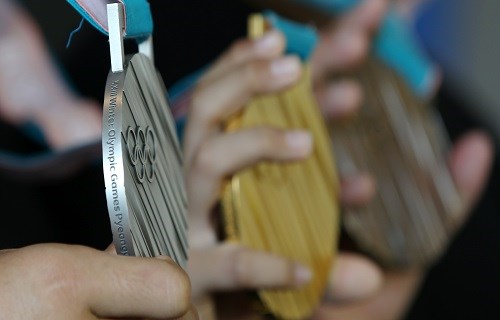Innocent athletes should be allowed to participate in the 2018 Winter Olympics
Grigory Rodchenkov, former head of Russia's anti-doping laboratory and World Anti-Doping Agency (WADA) informant, believes that Russian athletes, who have not been involved in doping, should be allowed to participate in the 2018 Winter Olympics under a neutral flag.
“Innocent athletes should not be prevented from participating,” Rodchenkov said in an email exchange on Friday and Saturday with The New York Times through his lawyer – his first interview since being put under protection of United States authorities.
Rodchenkov’s statement came less than a week before the International Olympic Committee (IOC) decides how to sanction Russia for its involvement in the wide-ranging doping conspiracy.
However, Rodchenkov added that Russia needs to take serious steps towards reform and redemption.
"I wish Tuesday began with a confession and apology from Russia, which would give the world confidence they might embrace truth and reform,” he told American sports network ESPN.
“This is not the Russian way. If they are not disciplined seriously, they will be laughing at the IOC behind closed doors and plotting their next caper,” Rodchenkov said.
In recent weeks, Rodchenkov’s detailed accounts about extensive breaches of drug-testing controls at the 2014 Olympics in Sochi, Russia – as well as his notes related to his lab work from that time – have been shared with IOC officials, writes the New York Times.
Russian officials have repeatedly disputed any kind of state involvement, accusing Rodchenkov of acting alone.
Yet, Rodchenkov's credibility was recently reinforced by a written decision issued by the IOC's Oswald Commission stripping Russian cross-Country skier Alexander Legkov of his Sochi medals and banning him from future Olympic competition, writes ESPN.
“Whichever wrongdoing he may have committed in the past, Dr. Rodchenkov was telling the truth when he provided explanations of the cover-up scheme that he managed,” the commission concluded.
IOC to rule on Russia’s Olympic fate
The IOC meets in Lausanne, Switzerland on Tuesday to decide whether to ban Russia from the 2018 Winter Olympics in South Korea for doping violations. It is one of the heaviest decisions ever faced by the Olympic movement.
The build-up to the meeting in Lausanne has been marred by a series of ‘bad news’ news for Russia:
On November 26, the International Association of Athletics Federations (IAAF) decided to maintain its two-year long suspension of Russia imposed over claims of state-sponsored doping
On November 16, WADA announced that Russia was still not compliant the international rules on doping. As such, WADA refused to lift the suspension of Russian National Anti-doping Agency (RUSADA).
Last month, the IOC handed out a number of bans to Russian medallists at the Sochi 2014 Games. Russia was stripped of 11 of its 33 medals for cheating, meaning it has lost its position at the top of the Sochi medals table to Norway, according to Agence France Presse (AFP).
However, banned Russian athletes won’t be returning the Olympic medals they won at the Sochi 2014 Games until solid proof of doping violations is presented, said Russian bobsledder Aleksandr Zubkov, who was stripped of two gold medals, according to Russia Today (RT).
“For the first time I see myself being accused of something I didn’t do. My samples were always clean,” Zubkov said, as cited by RT.
“In legal terms, no proof was presented – only words and empty accusations,” he added.
“Until there’s body of evidence, nobody, including myself, is giving their medals back. Those medals came in a fair competition through blood, sweat and tears,” Zubkov asserted.






